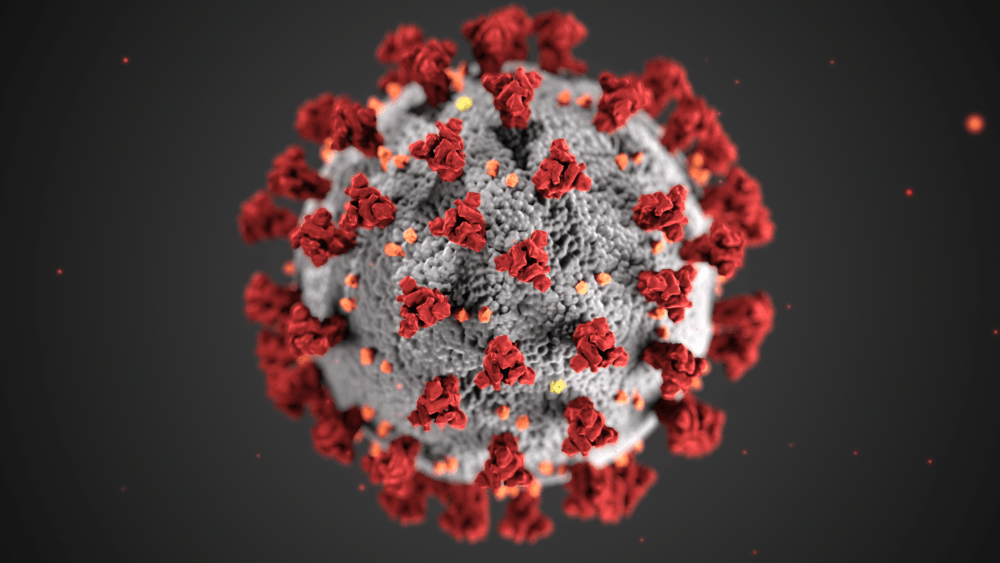If nothing else, the story of three Archbishops writing to the PM seeking, if possible, an alternative COVID vaccine to one developed by Astra Zenica and Oxford University, has grabbed attention.
Anthony Fisher, the Catholic Archbishop of Sydney, Glenn Davies of the Sydney Anglicans and the Greek Orthodox Archbishop of Australia, Makarios Griniezaki, raised concerns about vaccines cultured in human cell lines originally from foetuses.
Eternity ran a story late on Saturday, and their letter to the PM has been followed up by a broad mass media coverage.
The ABC, for example, has run four stories during the past day or so. “COVID-19 Vaccine: Science vs religion” was perhaps the most striking headline. In fairness, a later headline “Religious leaders question ethics of Oxford University developing coronavirus vaccine using cell lines from aborted foetus” and its story, captured the Archbishops’ views clearly.
Dr Nick Coatsworth, the Deputy CMO, is featured in the ABC’s online video defending the ethics of Oxford University: “It is a world leading University and the way it has manufactured the virus is to the highest ethical standards.” In another excerpt, he defends the safety standards of the virus production.
Meeting the ethical standards of the medical profession, and the ethical concern of the Archbishops, are two different things. Medical ethics in general do not oppose abortion per se. The Archbishops do. The gap in understanding is shown in the video where Coatsworth talks about the cell lines used to produce the vaccine as being derived from an “ethically aborted foetus.”
“This is not an anti-vaccination stance, it is a positive call for ethical research.” – Glenn Davies
In a statement issued on behalf of Glenn Davies, the Anglican Archbishop of Sydney, an important distinction is made.
“This is not an anti-vaccination stance, it is a positive call for ethical research. Vaccines are a good thing yet consistent with our view of the protection of human life in the womb, it is vital that they be produced within an ethically scientific framework.”
The Archbishops are not arguing against vaccines in general.
In their letter, they describe a range of views: “Some will have no ethical problem with using tissue from electively aborted foetuses for medical purposes. Others may regard the use of a cell-line derived from an abortion performed back in the 1970s as now sufficiently removed from the abortion itself to be excusable. But others again will draw a straight line from the ending of a human life in abortion through the cultivation of the cell-line to the use for manufacturing this vaccine; even if the cells have been propagated for years in a laboratory far removed from the abortion, that line of connection remains.”
HEK-293 – the cell line used in the AstraZeneca vaccine research – is described by Science magazine as “a kidney cell line widely used in research and industry that comes from a fetus aborted in about 1972”.
A fuller description of cell lines used in vaccines and other research is available here.
As far as Eternity is aware, no abortions took place in order to have fetal material available for research; they are derived from abortions which took place for other reasons. Production of vaccines do not require continued “harvesting” of foetuses as implied in some ‘anti-vaxxer’ statements.
A government spokesperson told Guardian Australia that “the prime minister respects the views of Australia’s many religious communities and understands the issues that are being raised”.
“Many vaccines in development do not contain these cell lines, including the UQ [University of Queensland] vaccine candidate which the government is already supporting with $5m.”
The 2005 Vatican statement on vaccines is a key document for Christians on the subject.
At this stage, we do not know what vaccines if any will be effective against COVID-19; in particular, whether ones made using foetal-derived cell lines, or not, will be the only or main ones available and safe to use.
The 2005 Vatican statement addresses the possibility that the available remedy is a vaccine derived via fetal cell lines (as is the case of rubella/german measles).
“As regards the diseases against which there are no alternative vaccines which are available and ethically acceptable, it is right to abstain from using these vaccines if it can be done without causing children, and indirectly the population as a whole, to undergo significant risks to their health. However, if the latter are exposed to considerable dangers to their health, vaccines with moral problems pertaining to them may also be used on a temporary basis. The moral reason is that the duty to avoid passive material cooperation is not obligatory if there is grave inconvenience. Moreover, we find, in such a case, a proportional reason, in order to accept the use of these vaccines in the presence of the danger of favouring the spread of the pathological agent, due to the lack of vaccination of children. This is particularly true in the case of vaccination against German measles.”
Feedback
Please respond to this topic in language that might persuade, rather than anything that could be seen as an attack on people with a differnet view to you



